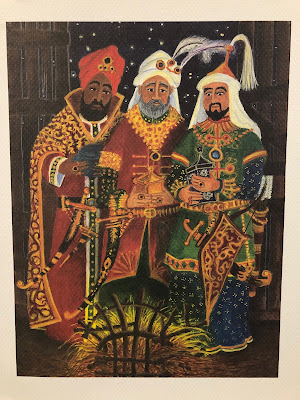When he became a man, Jesus embraced poverty rather than wealth and repeatedly told his disciples that he was not a typical king who embraced human power and glory. When signs of his divinity manifested through his transfiguration on a mountain and his acts of healing, he tried to keep them quiet so he would not be worshipped as the long-awaited Messiah. The one gift of the magi that Jesus accepted was the myrrh, as reflected in his comment when others criticized Mary of Bethany for anointing him with costly ointment: “Leave her alone. She has done this in preparation for my burial” (Jn 12:7).
The magi are not to be faulted for bringing Jesus gold and frankincense, because the concept of a servant king was outside their understanding. Today, we know that the gifts Jesus desires most of us are to follow his teachings: to love God above all and our neighbor as ourself, to act with justice and mercy, and to be humble. These are the gifts that are pleasing to Christ — no wrapping required!

No comments:
Post a Comment